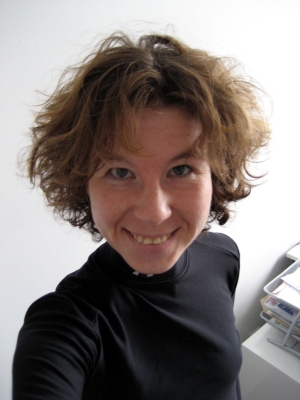Len Adleman: Quantum Mechanics and Mathematical Logic
Today I’m pleased to announce that we have a guest post from a very distinguished colleague of mine, Len Adleman. Len is best known as the “A” in RSA and the inventor of DNA-computing. He is a Turing Award laureate. However, he considers himself “a rank amateur” (his words!) as a physicist.  He’s one of my colleagues on whom I can always rely for a fun and interesting conversation, even if it is just for a fleeting moment during a chance encounter in an elevator. The other day he told me he’d been thinking a lot about quantum mechanics, and it seemed like it would be fun to share his thoughts with others here on the blog. So join in using the comment form if you’ve some thoughts of your own in response.
He’s one of my colleagues on whom I can always rely for a fun and interesting conversation, even if it is just for a fleeting moment during a chance encounter in an elevator. The other day he told me he’d been thinking a lot about quantum mechanics, and it seemed like it would be fun to share his thoughts with others here on the blog. So join in using the comment form if you’ve some thoughts of your own in response.
Here’s Len.
-cvj
_________________________________________________________________________________
For a long time, physicists have struggled with perplexing “meta-questions” (my phrase): Does God play dice with the universe? Does a theory of everything exist? Do parallel universes exist? As the physics community is acutely aware, these are extremely difficult questions and one may despair of ever finding meaningful answers. The mathematical community has had its own meta-questions that are no less daunting: What is “truth”? Do infinitesimals exist? Is there a single set of axioms from which all of mathematics can be derived? In what many consider to be on the short list of great intellectual achievements, Frege, Russell, Tarski, Turing, Godel, and other logicians were able to clear away the fog and sort these questions out. The framework they created, mathematical logic, has put a foundation under mathematics, provided great insights and profound results. After many years of consideration, I have come to believe that mathematical logic, suitably extended and modified (perhaps to include complexity theoretic ideas), has the potential to provide the same benefits to physics. In the following remarks, I will explore this possibility.
But, be warned: I am not a physicist and these ideas are embryonic. At best they indicate a possible direction; a fully functional theoretical framework, if possible at all, would be the work of lifetimes.
For most of my academic life, my primary topic of research (and affection) has been […] Click to continue reading this post



 Today, a guest post. I’m excited, because it’s from one of my favourite bloggers, Sabine Hossenfelder, or “Bee” as you may know her from her comments here, and of course her blog
Today, a guest post. I’m excited, because it’s from one of my favourite bloggers, Sabine Hossenfelder, or “Bee” as you may know her from her comments here, and of course her blog  So let me redirect the question to your opportunity to use your inspiration.
So let me redirect the question to your opportunity to use your inspiration.














